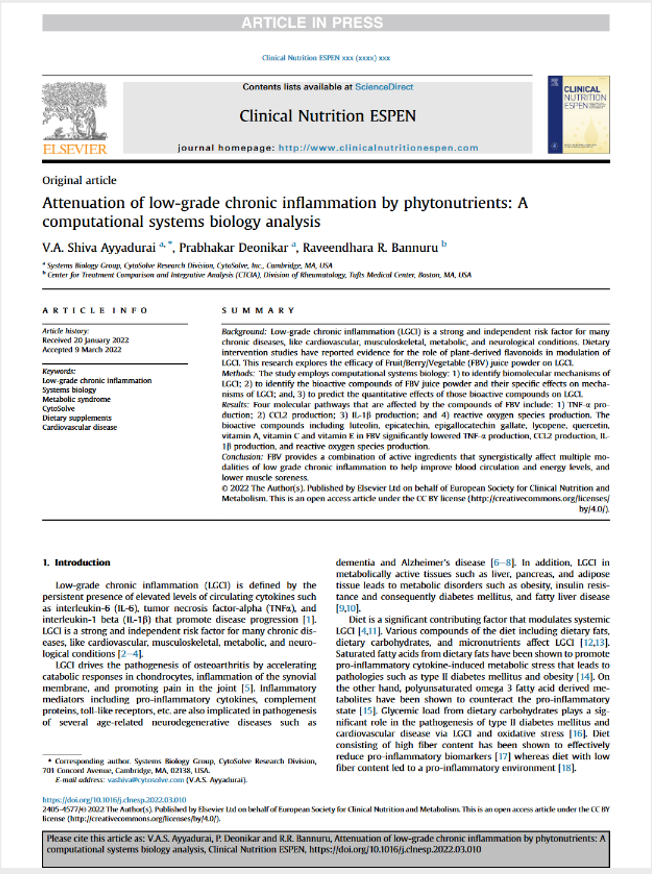Attenuation of low-grade chronic inflammation by phytonutrients: A computational systems biology analysis
V.A. Shiva Ayyadurai, Prabhakar Deonikar, and Raveendhara R.Bannuru
CLINICAL NUTRITION ESPEN
https://doi.org/10.1016/j.clnesp.2022.03.010
Background
Low-grade chronic inflammation (LGCI) is a strong and independent risk factor for many chronic diseases, like cardiovascular, musculoskeletal, metabolic, and neurological conditions. Dietary intervention studies have reported evidence for the role of plant-derived flavonoids in modulation of LGCI. This research explores the efficacy of Fruit/Berry/Vegetable (FBV) juice powder on LGCI.
Method
The study employs computational systems biology: 1) to identify biomolecular mechanisms of LGCI; 2) to identify the bioactive compounds of FBV juice powder and their specific effects on mechanisms of LGCI; and, 3) to predict the quantitative effects of those bioactive compounds on LGCI.
Results
Four molecular pathways that are affected by the compounds of FBV include: 1) TNF-α production; 2) CCL2 production; 3) IL-1β production; and 4) reactive oxygen species production. The bioactive compounds including luteolin, epicatechin, epigallocatechin gallate, lycopene, quercetin, vitamin A, vitamin C and vitamin E in FBV significantly lowered TNF-α production, CCL2 production, IL-1β production, and reactive oxygen species production.
Conclusions
FBV provides a combination of active ingredients that synergistically affect multiple modalities of low grade chronic inflammation to help improve blood circulation and energy levels, and lower muscle soreness.

